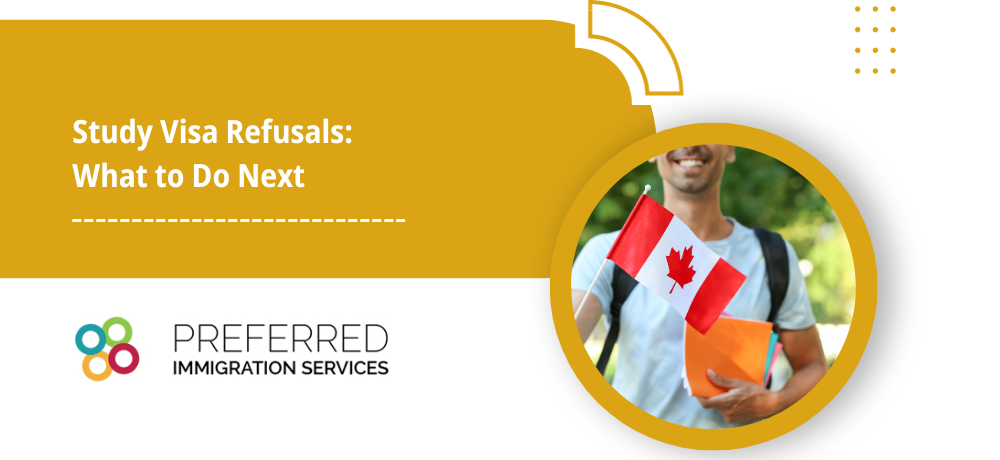Study Visa Refusals: What to Do Next

Receiving a study visa refusal can be disheartening, especially when your dreams of studying in Canada are on the line. However, a refusal doesn't have to be the end of your educational journey. In this blog, we'll explore the steps to take and options available to you if your study visa application has been denied, helping you get back on track toward your Canadian education goals.
Understand the Reasons for Refusal of Study Visa:
When your Canadian study visa application is refused, the first step is to carefully examine the refusal letter provided by Immigration, Refugees, and Citizenship Canada (IRCC). This letter will detail the specific grounds on which your application was denied. It's crucial to comprehend these reasons thoroughly, as they will guide your subsequent actions.
Seek Legal Advice or Consult an Immigration Expert:
Engaging the services of an immigration lawyer or consultant experienced in Canadian immigration matters can be immensely beneficial. They possess a deep understanding of the Canadian immigration system, can evaluate the specifics of your case, and provide tailored advice. They will help you decipher the refusal reasons and formulate a strategic plan moving forward.
Gather Stronger Supporting Documents:
You may need to bolster your application with more robust supporting documentation depending on the reasons for your Canadian study visa refusal. This could involve providing additional financial records demonstrating your ability to cover tuition and living expenses, a well-crafted study plan outlining your educational objectives, or evidence of stronger ties to your home country, such as job offers or family connections.
Consider Reapplication or Appeal:
In Canada, you generally have two options when faced with a visa refusal. You can either reapply or appeal the decision. Reapplication might be appropriate if you believe you can address the issues that led to your initial refusal. An appeal can be pursued if you believe there was an error in the processing of your application or if your circumstances have changed significantly. Your immigration expert will help you decide which option is more viable in your situation.
Improve Your Eligibility and Reapply Wisely:
Focus on improving your eligibility to enhance your chances of success in a future application. This could involve upgrading your academic qualifications, enhancing your language proficiency, or addressing financial stability concerns. When you decide to reapply, ensure that your application is meticulously prepared, addressing the specific issues highlighted in the refusal letter. Highlight any improvements or changes in your circumstances that demonstrate your eligibility.
A study visa refusal is undoubtedly a setback, but it doesn't have to be the end of your dreams of studying in Canada. With determination, the right approach, and expert assistance, you can overcome the hurdles and continue your education journey. If you need guidance or support in navigating study visa refusals, Get in touch with Preferred Immigration Services today! Our experienced team is here to help you find the best path forward.
To learn more about the services we offer, please click here. To get in touch with us, please click here or give us a call at (780) 430-7988 and International 800-899-8841.